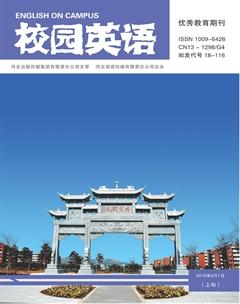Different Number Taboos in Chinese and Western Cultures
万玲
With the continuous development of society, digital taboos cover various aspects of custom, habits, psychology, philosophy, literature, etc., containing much cultural heritage with some profound meaning. Numbers culture in any country occupies an important position. The same figures in different countries and nations can produce different emotional meaning from different figures culture based on different languages and ethnic and cultural background. Taboos exist in all nations which cant be avoided when we communicate with foreigners in the different social background, historical factors, religious faith etc.
At the earliest time, taboos in western were related to religion, sacrifice, superstition and ghost. In China, they are mainly related to denomination and imperial power. Taboo numbers is due to the reasons such as history, religion, or customs, for some people think these numbers can bring bad influence on their lives and avoid the numbers. These numbers exist in every national culture, but of different meaning.
The number taboos in western countries
The biggest number taboo in western countries—13
It is said that westerners prefer singular to plural, but there is no favor to 13. Westerners escape 13 as the plague for which there are lots of phenomena due to this, people created a special word “triskaidekaphobia” to express this exaggerated phenomenon. There are also conventional customs for triskaidekaphobia in western daily life. In China, people seem not to take number 13 as taboo. In “ Jinling 13 hairpin” thirteen courtesans voluntarily sacrificed themselves in order to keep female student life during the Nanjing Massacre touching story.
Number 6 is also hardly favored by people in the west, especially such as “66”, “666” and “666…” “666” here refers to the Roman tyrant Nero, who persecuted Christian, and then it extended its meaning to refer to all devil power. In China, “six” is commonly used in language and has the completely opposite meaning compared in western. People relatively prefer this number for its symbolizing things going on smoothly and lucky, such as “liu liu da shun” (六六大顺).
The number taboos in China
The number “four” is considered as an unlucky number in China and the pronunciation of “four”-“si” is homonym of “dead”. People in coastal Fujian, Guangdong, Hong Kong, Macao and overseas Chinese prohibit the usage the Chinese number “four”. If it is inevitable to encounter the “four” in their life, they will intelligently use two pairs or 2 and 2 instead. Because 4 and “dead” are homonym, sounds unlucky, so in modern society, license plate numbers, telephone numbers which ends up with “4” are extremely unwelcome. In western countries, number “four” is of the positive symbolism containing the meaning of “unified, tenacity, stability, strength”. Furthermore, “four” and “fair” are homophonic, so four is a symbol of fairness and justice.
The factors leading to the differences
Different thinking patterns influence it so much. In western, some traditional taboos still have an impact on the cultural life of the West, and this situation in quite a long time will not be changed which is influenced by Western Christianity taboos experienced a long period of history. Chinese concentrate on visualized pattern of thinking, counting one, two, three…ten, which are based on structure. However, westerners concentrate on logical thinking pattern and they make three-digit number as a section when they read figures.
The theory of “unity of god and human” was admired in ancient philosophy. Harmony takes up an important role in Chinese culture that Chinese people have a special feeling to double numbers. On the contrary, influenced by Bible, westerners are fond of odd number holding a view that odd is lucky except 13 and Friday. From ancient Greece, westerns believed in the Cosmology of “Separation of nature and human”, so that in their ways of thinking, contradictory and opposite are emphasized and they stressed the contradictions and conflicts of matters that discord is beautiful. Reflected in the digital culture, plural numbers was regarded as unlucky opposite to odd numbers as extremely lucky (except 13 and Friday).
Increasing the ability of intercultural communication will take a long-time for the ways of thinking and contextual environment are quite different in different countries and we are hard to change them. It requires us to dig the hidden potential causes which influence the matters beyond the surface of the cultural phenomenon in intercultural communication.

